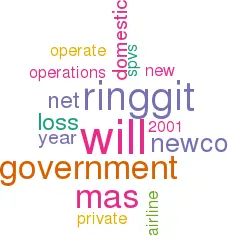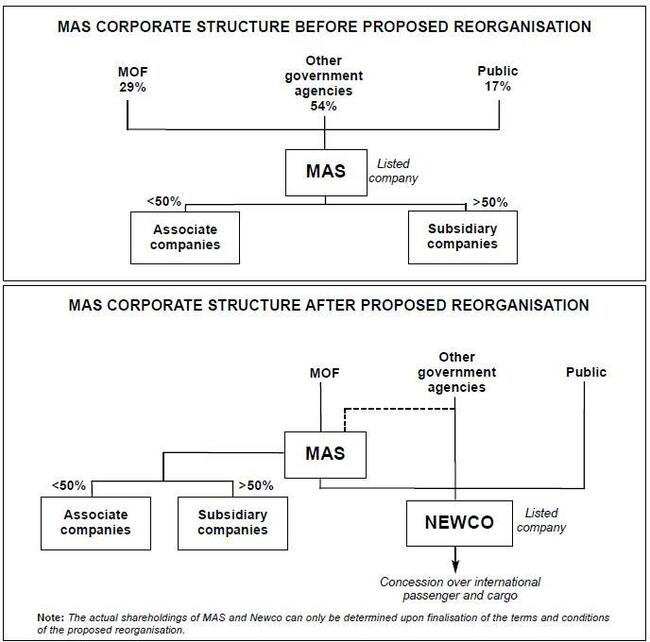MAS: is the Newco approach really a solution?
March 2002


MAS has failed to recover from the two–year Asian crisis that began in mid 1997. Struggling under the private ownership of entrepreneur Tajudin Ramli, MAS was bought back by the Malaysian government early in 2001. The deal was controversial, with Ramli offered Ringgit 8 per share when the shares quoted on the Malaysian stock–market were trading at a third of this amount. Also, a police investigation has been launched into alleged financial irregularities at MAS while under Ramli’s control.
The re–nationalisation has left various government agencies with 54% of the airline, while 29% is owned by the Ministry of Finance, and the remaining 17% is in private investor hands through its quotation on the Kuala Lumpur exchange.
At the end of January 2002, the MAS Group was re–organised, although full details of the new structure have yet to be announced. What is known is that the airline has been split in two. "Newco" will operate international passenger and cargo operations. The government has assumed all of the airline’s assets (aircraft, property and equipment) and liabilities, and will be responsible for operating domestic routes, which are believed to be chronically loss making. The liabilities include Ringgit 9.2bn ($2.4bn) of debt.
Newco has been granted a 30–year concession to operate the international passenger and cargo operations. Somewhat confusingly, Newco will also operate the domestic services for a fixed fee but will not include these operations on its balance sheet.
The government has set up a number of special purpose vehicles (SPVs), which will lease back the assets to Newco (for example, the sale and leaseback of eight widebodies has just been agreed). What is not known is whether the lease rates that the SPVs are giving Newco are market–orientated; the government states that the rates will reflect market conditions.
Moreover, the government suggests that in time it will seek foreign investment in some of the SPVs. MAS itself looking to sell its catering division to a consortium led by LSG SkyChefs.
The airline’s shares rose about 26% to Ringgit 3.8 on the announcement of he restructuring plan, despite its lack of clarity.
What private investors are largely relying on is the statement from Nor Mohamed, advisor to Prime Minister Mahathir Mohamed, who said that "looking after the interests of minority shareholders was one of our prime considerations when we decided on the reorganisation exercise".
Analysts reckon that the airline remains 35% overstaffed and that the government does not have the political will to change this. At the time of the announcement of the re–organisation, it was stated that "Malaysia always pursues socio–economic goals, and we are mindful of social responsibility." Thismeans that the over–staffing problem will continue.
However, the government has endorsed a 52% fare increase on domestic routes in August 2001, which it is estimated could reduce domestic losses in the future from Ringgit 360m a year to Ringgit 150m per year. The carrier’s third quarter results for the three months to December 31, 2001, showed a net loss of Ringgit 340m, which is an improvement on the Ringgit 452m net loss recorded for the same period in 2000.
MAS has said that it will be 2004 before it envisages becomes profitable once again. Deutsche Bank are forecasting a Ringgit 625m net loss for the current financial year, a Ringgit 34m net loss for the year ending March 31 2003, and a net profit of Ringgit 358m for 2004. It seems that the new organisational structure would appear to be a first in the industry.
The official line from MAS is that: "while there will be a clear demarcation of role and function between the two companies, an essential connectivity will be preserved by way of centralised planning on policy and strategy, supported by regular consultation.
We hope to enjoy the dual benefit of a more competitive, efficient organisation, without sacrificing the potential for synergy by sharing resources and personnel towards a common objective. In fact, the new set up may be seen in the light of a smart partnership — a mutually reinforcing win–win deal."
